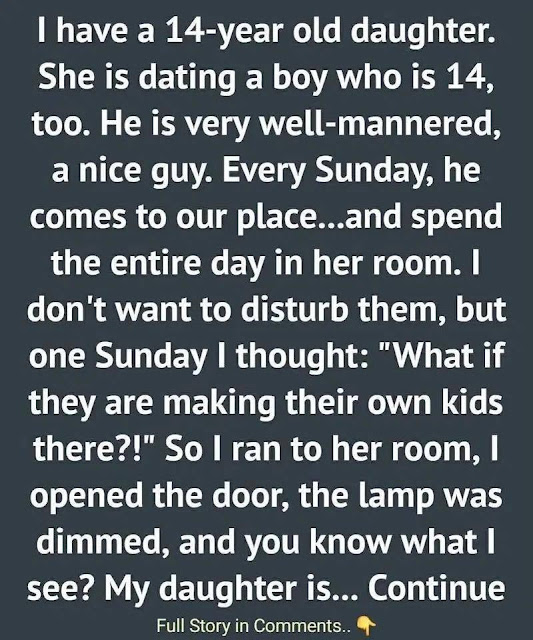It began with a text.
Just three words from my 14-year-old:
“I need help.”
Not a request for a ride. Not a question about dinner.
A quiet cry, sent into the quiet of the night.
My breath caught. My hands went cold.
Because just two nights before, in the hush of her sleeping room, I had done something I once swore I’d never do:
I had picked up her phone—not to spy, but to see.
Not out of suspicion.
Out of love.
Out of the kind of fear that lives in the chest of every parent raising a child in a world wired for connection—and isolation.
The Breaking Point
She had grown quieter. Her laughter, when it came, felt like something borrowed. Her eyes held a tiredness no amount of sleep seemed to ease. When I asked, “How are you, really?” she’d shrug: “Fine.”
But her phone told a different story—screen time peaking at 2 a.m., notifications piling up like unread prayers.
I told myself I was imagining things.
But the world whispers warnings: cyberbullying, hidden pain, voices lost in the noise.
And the line between respecting her growing independence and ensuring her safety had grown so thin, I could barely see it anymore.
So one night, heart in my throat, I lifted her phone—not to invade, but to understand.
What I found wasn’t danger.
It was sorrow.
No strangers. No explicit messages.
Just one note, saved in her drafts, titled: “Why I’m Tired.”
Lines like:
“No one would notice if I disappeared.”
“I smile so no one worries.”
“I’m so tired of pretending I’m okay.”
And a screenshot of a group chat—where girls she called friends wrote things like:
“Why does she never talk?”
“So weird.”
“Ghost girl.”
I set the phone down.
And I wept—not just for her pain,
but for the crushing realization:
She didn’t think she could bring this to me.
The Conversation That Changed Us
The next morning, I didn’t mention the phone.
I didn’t accuse. I didn’t lecture.
I sat beside her on the edge of her bed, sunlight just beginning to fill the room, and said softly:
“I saw something that scared me—not because you did anything wrong…
but because you’re hurting—and you didn’t think you could tell me.”
She went very still.
Then, like a dam long overburdened, she broke.
She told me about the weight—the anxiety that lived in her chest like a stone.
How she kept silent, not out of defiance, but out of love:
“I didn’t want to worry you.”
“I thought you’d take my phone and I’d be even more alone.”
“I didn’t want to be ‘the problem.’”
I held her—and I apologized.
Not just for looking.
But for not seeing sooner.
For not making our home a place where falling apart was safe.
Where “I’m not okay” wouldn’t be fixed—just held.
What We Built Together
That moment became a turning point—not an ending, but a new beginning.
We made gentle agreements, born of honesty, not control:
- Phones charge outside bedrooms—for all of us. (Yes, even mine.)
- Weekly “Heart Talks”: 20 minutes, no screens, no judgment—just space to say what’s real.
- Her phone remains hers—unless she invites me in.
- I share my own struggles too—so she knows softness isn’t weakness; it’s courage.
And the deepest truth we learned?
Trust isn’t the absence of fear.
It’s choosing to stay—open, listening, present—even when you’re afraid.
A Quiet Word to Fellow Parents
I’m not here to tell you whether to look at your child’s phone.
That choice is yours—and it’s heavy, and holy, and deeply personal.
But if you’re lying awake tonight, staring at the ceiling, wondering:
“Is my child okay?”
Then ask.
Not with accusation—but with love.
“I’ve noticed you seem tired. I’m here. No fixing. Just listening.”
Teens don’t need perfect parents.
They need safe ones—people who won’t flinch when the truth is tender.
People who can sit in the silence and say, “Tell me more.”
Because sometimes—
the most profound trust isn’t built by giving space.
It’s built by showing up, hands open, heart open,
the moment they whisper:
“I need help.”
You are not alone.
And your love—even when it stumbles—is still their anchor.
If this resonates, share your story below.
Your words might be the lifeline another parent reaches for—
just in time.
💛
With tenderness, and hope.






